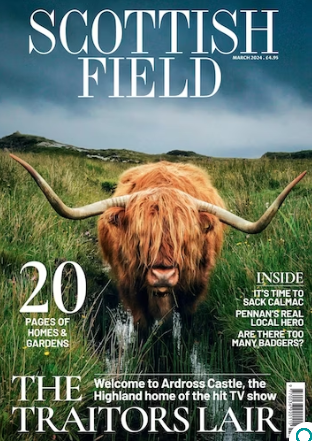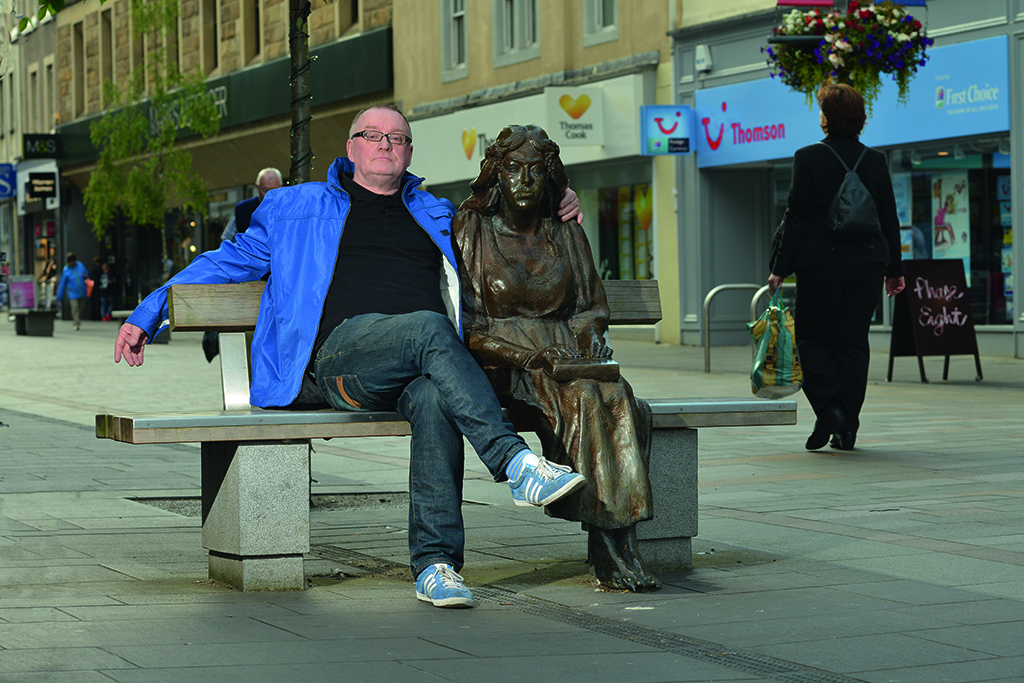
Broadcaster Stuart Cosgrove is full of Northern soul
The two loves of broadcaster and writer Stuart Cosgrove’s life – football and music – both have their origins in his home town of Perth.
Some of my earliest memories of Perth are of the long summers. I don’t know if they felt long because we were off school or just because we were outside all the time, but all of Perthshire was a world of wonder to me.
A small gang of five or six of us would go out at nine o’clock in the morning and not be home again until about seven o’clock at night – we wouldn’t have seen our mums and dads all day. We would go to small lades and pools and go fishing for tadpoles. We used to climb up the Buckie Braes and walk along the banks of the River Almond.
In those days, they hadn’t finished building the Tulloch estate – or Hillyland as we call it – so you could get out into the countryside. It was a hinterland with everything from plum orchards to farmland. I used to play at McDiarmid Farm when it was still a working arable farm before it became home to my beloved St Johnstone’s ground.
When you’re a kid you find everything; you discover birds’ nests and tadpoles. I learned how to guddle small salmon in the Tay – tickling their bellies to catch them. You were usually taught these skills by someone who was two or three years older than you.
I have this view of Perth – and it’s probably one of the reasons why I love it so much – that it’s the perfect size if you’re a kid. It’s big enough to have all of the things you would need in terms of shops and provisions, but small enough so that you know almost everyone of your age.

Stuart Cosgrove cuddles up to the Fair Maid of Perth’s statue on the high street (Photo: Angus Blackburn)
My family’s history in Perth goes back to the middle of the 19th century, when my great-great-great-grandmother, Sarah Leyden, arrived in the city from Galway on the west coast of Ireland. She arrived pretty much at the height of the potato famine and had lost children and her husband, whose name was James Cosgrove. He had died of a famine-related illness in Glasgow and never made it to Perth.
She set up home in a small Medieval street in the centre of Old Perth, called the Meal Vennel. Perth in those days was cut around a whole range of trade-based vennels, so the Cutlog Vennel was the wood and logs, the Meal Vennel was meal and grain. By the 19th century the Meal Vennel had effectively become an Irish ghetto. James Connolly, the Irish socialist hero, was on the run and hid for three years in the Vennel.
My parents originally lived in town, on Scott Street, and their flat looked down over the Vennel, where their ancestors had lived. At the time, the old city centre was being modernised and a lot of what was perceived as slum housing was pulled down and people were relocated. For the first three or four years of my life I lived in a pre-fabricated house in Hillyland. Then when the pre-fabs were deemed to be no longer suitable they built the Letham estate and we were one of the families that were re-housed. We then moved up to Strathtay when I was about six or seven years old.
I went to St John’s Roman Catholic Primary School in the centre of town. It was hugely enjoyable and character forming. There was a lot of discipline – there was no question that some of the teachers and some of the nuns were very scary, but there was a sense of order and structure around it, which I think you deeply want at that age, even if you rebel against it.
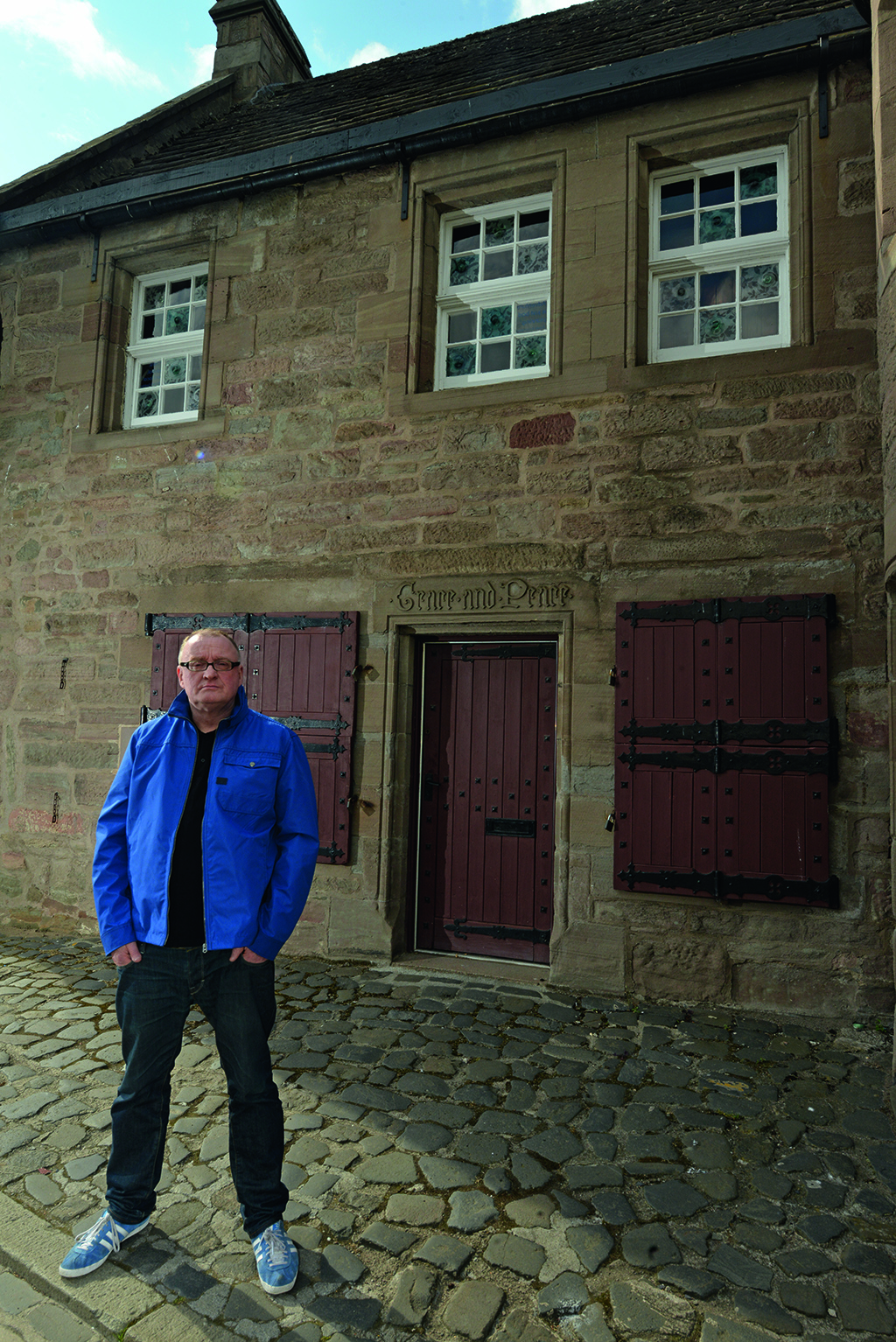
The Vennels are one of Stuart Cosgrove’s favourite places in the city of Perth (Photo: Angus Blackburn)
My father died while I was at primary school. He was a mechanic and lorry driver with the Co-op and became a shop steward with the Scottish Horse & Motormen’s Association. Dad died when a lorry blew a tyre and hit a tree. I was out of school for a good bit of time after that but the school was very supportive. I had a great upbringing. After my father died, you would probably describe it as a socially-deprived upbringing because there wasn’t a lot of money. My mother was a widow and a widow’s pension was derisory.
There was no wealth and we lived in a council house on an estate on the edge of Perth, but the level of emotional security and love I was shown – not just by my mother, which was deep, but by the school and relatives and neighbours – was just so great. You end up realising later in life that actually material wealth is not what shapes you as a person. I know that the emotional wealth I was shown at that time in my life was much greater than having money.
Secondary school was less enjoyable for me as it went on. We were moving into the late 1960s, with the war in Vietnam, with the whole question of people being more rebellious, with long hair, with The Beatles, with The Stones. I was being a rebel and the school was struggling to find a language that it could communicate to me with and all I saw was barriers.
The one thing that probably saved my life in terms of achievement was that Perth Theatre had a very ambitious and forward looking youth theatre at the time, including an out-reach group of community theatre workers. They had a van called the ‘Gang-a-boots’, as in ‘going about’, and they would go about the estates in Perth – Muirton and Letham and Craigie – and engage young people in drama I met them in the community centre in Letham and got dragged more and more under their spell. It began as games and then improvisation sessions.
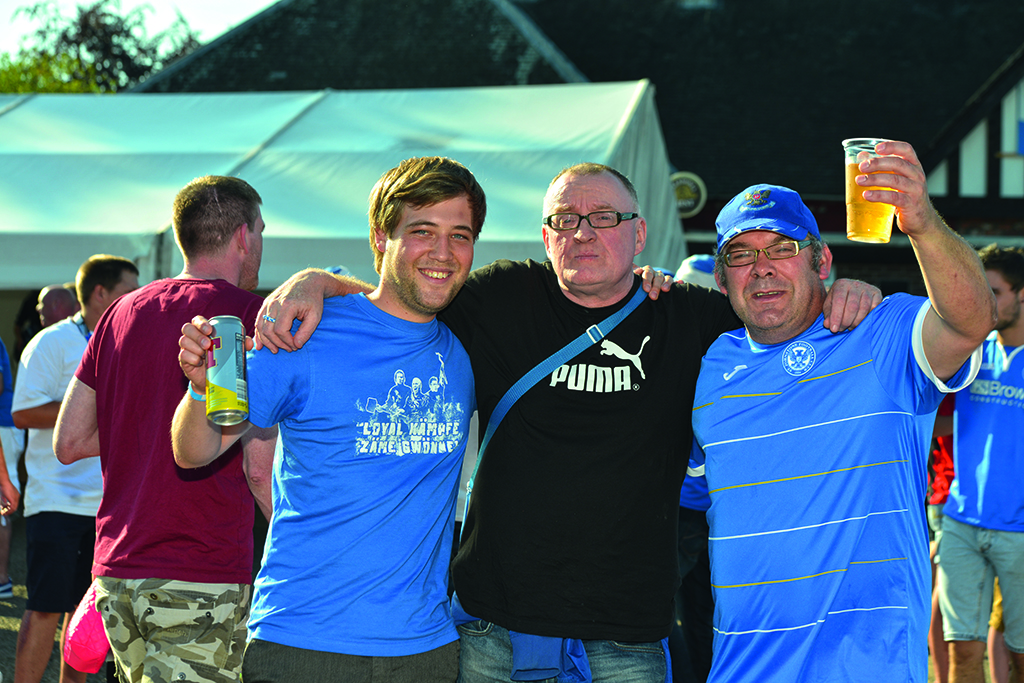
Stuart Cosgrove with fellow St Johnstone supporters (Photo: Angus Blackburn)
They started to say I should go to drama school because I could become a successful actor. My mum was very worried about that, because nobody she knew had ever done it. Then someone said I could go to university to study drama so I would get a degree too. She thought that was a smart compromise. I was 17 when I moved down to Hull and did drama there. Later on, when I did my PhD, I shared a study room with Anthony Minghella, the director of The English Patient. So I had a great experience at university.
I registered at Hull on the Friday morning; on the Wednesday night St Johnstone had beaten SV Hamburg at Muirton in one of the greatest games in Saints’ history, when they were in the old UEFA Cup. I had a pair of John Lennon specs and when Saints scored I jumped up in the air and my glasses fell off and got trampled on. So I went off to university with no glasses and wasn’t even able to see the blackboard. The Hamburg game was my swansong. It was a high period in being a Saints fan and that helped to bind my relationship with the town.
Later, me and a friend moved down to London. Saints were at their lowest ebb; they were officially the worst team in Britain. But we would go religiously every Saturday afternoon into Central London to a department store and go down to its home furnishings department, which is where it sold television sets. We would stand and watch the teleprompter printing out the results – St Johnstone 1, Clyde 3 and results like that. It was our way of keeping in touch with Saints, even though they were rotten.
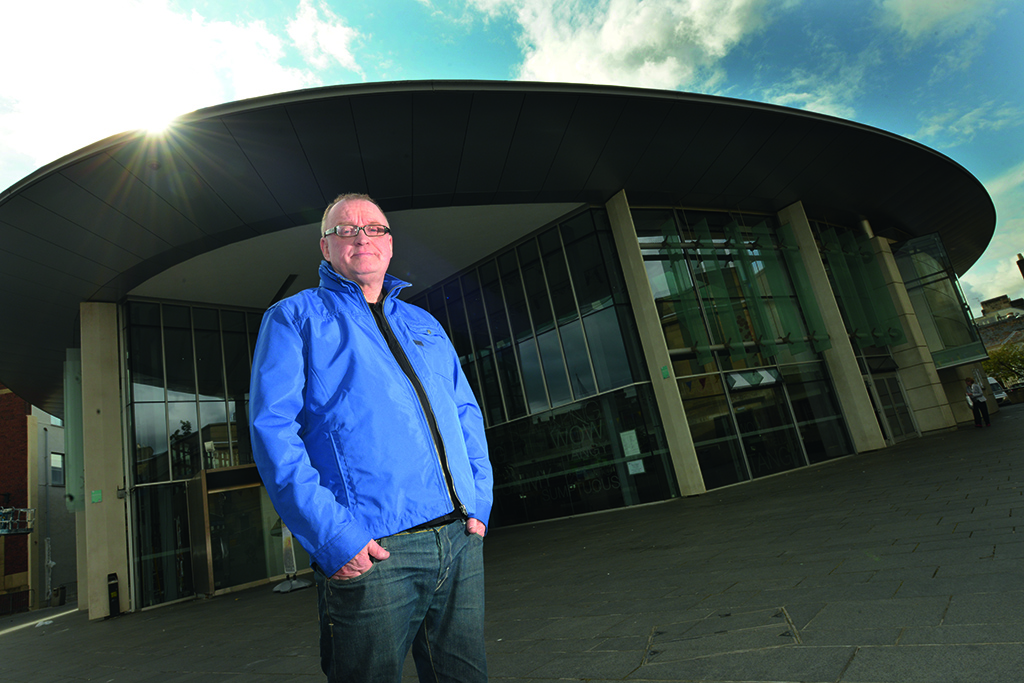
Stuart Cosgrove outside Perth Concert Hall, which he thinks has helped to attract world class acts to the city. (Photo: Angus Blackburn)
Then the rebuilding began under Geoff Brown’s era and so returning home became a greater treat. I’ve returned throughout my entire life and long may that last.
After university, I worked as a music journalist, including for NME. The origins of my interest in music were in a small hotel on Atholl Street in Perth called the Corina. It had a back room and, from the age of about 16 through until about 21, I was one of a group of five or six people who ran the Perth City Soul Club. We played soul music, mostly Tamla Motown, then northern soul, by which time I had graduated and was going from Hull to the Wigan Casino. I had access to these rare and obscure soul records and I used to play them at the Corina in Perth.
Saints and soul music are still the two abiding passions of my life. Perth Concert Hall is a fantastic addition to the town. World-class acts that would never have come to Perth are attracted by it. I get quite nostalgic when I think back to the bands that used to come to the old Perth City Hall. I have fond memories of my sister smuggling me in to see the Spencer Davis Group.
When I go back now, I love walking through the old parts of Perth. When my mother passed away, we had her funeral at the old St John’s Church and then afterwards I went walking through the Old Town and along the banks of the Tay. It brought back memories of the winter of 1962-3, which was one of the coldest Scotland has ever had, and the whole river was frozen. Bobby Cassidy and me were in primary six and we walked out onto the Tay. I can still picture it now – that doesn’t happen many times in your life.
- This feature was originally published in 2014.
TAGS

